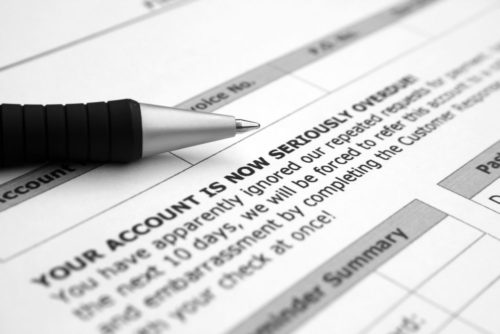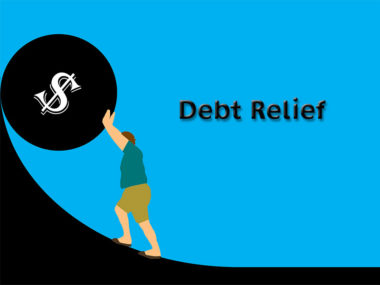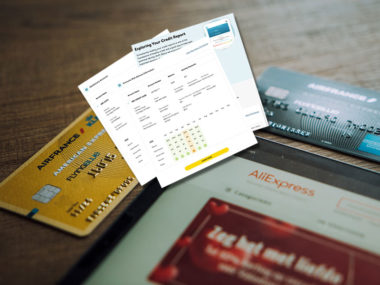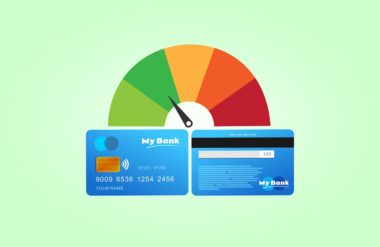If there is one thing in life that every American can agree to hate, it’s collection calls. If you’ve gotten debt collection calls in the past, you might understand how frustrating and constant they are. Cold calls throughout the day, or countless letters in the mail: once your account has gone to collections, you might never be free of the nuisance.
What can you expect from a typical call? Or if you’ve had a few already, what happens when you don’t pay collections? What can you do to make sure you avoid collections? Can you go to jail for debt? Additionally, what effect do collection agencies have on your credit score? This article will help you navigate collection calls, as well as emphasize the importance of getting delinquent debts taken care of and beginning to repair your credit as soon as possible.
Table of Contents
How Do Collections Work?
Past due notices might be common, but a constant fear is that those past due accounts will quickly be sent to a collections agency. Dealing with past due notices might be easy, but collections calls are frighteningly hard to manage.
According to the Federal Trade Commission (FTC), debt collectors are a variety of groups or agencies (including lawyers) that will either try to recapture debts owed to their clients, or groups that will buy delinquent accounts and will call to collect on those accounts to make a profit on the purchase of debt.
Every time you miss a payment on any sort of bill the company or creditor will only wait a certain amount of time before they send the account to a collections agency. Typically, accounts won’t go to collections until after a grace period of 30 days or some other allotted amount of time has passed. Sending someone to collections is a last-ditch effort.
The company or group that you originally owed money to is only interested in making that money back, and they don’t care if it’s you or someone else buying your account. While some companies have internal debt collection divisions, others will sell their delinquent accounts.
Sometimes collections can even be sold to multiple agencies — meaning you would need to deal with multiple collections companies who are all fighting over portions of the same bill. The worst part is that each of the accounts in collections can be reported in your credit history, effectively turning one delinquency into multiple derogatory credit marks.
Once the collections agency has control of your bill, they will try to contact you as soon and as often as possible. However, if the debt has not been paid within their allotted time frame, they may seek legal recourse. Debt collectors are allowed to sue you for the amount you owe, as well as for any additional cost due to interest on the original payment (if the contract or state law allows it) or to cover the legal processes.
How Do Collections Affect Your Credit Score?
Collections can have major effects on your credit score. Since 35% of your credit score is determined by on-time payments on existing debts, having a collections account show up on your credit report can be especially detrimental. The credit bureaus will see that collection notice as a bad sign, and your score will start to drop as a result.
Additionally, collections notices will stay on your credit report for up to seven years, but other reports — such as the new VantageScore 4.0 — might not include a collections notice at all or will consider collections notices as being less severe.
With the way debts and accounts in default get sold between lenders and collections agencies, it is not unusual to have a single debt show up under multiple names on your credit report. This can quickly make a bad situation worse, as credit reporting companies may end up counting each account in collections separately, greatly exaggerating the number of defaults you actually have.
Even if you’ve paid off the debt, the duplicate accounts on your record may continue to show as outstanding if the collections agencies or the credit reporting companies don’t receive updated information or a dispute from you or a credit repair service working on your behalf.
Debt Collection Policy Guide
The most dreaded aspect of collections isn’t always the amount owed, but how to deal with debt collectors as a whole and the calls that follow for weeks after the fact.
Luckily, you have certain rights under the federal government that can protect you from harassment. This is known as the Fair Debt Collection Practices Act (FDCPA), and it “prohibits debt collectors from using abusive, unfair, or deceptive practices to collect from you,” according to the FTC. This includes threats to your family, threats of arrest, using obscene language, and calling simply to annoy the debtor.
However, it is important for you to follow certain etiquette when dealing with collection calls. As NOLO explains, knowing how to handle collection calls can not only ease some of the anxiety, but can also save you from potential legal or financial trouble. Here is a list of things you should do and should not do when handling collections calls:
Things You Should Do
- Make a log of all the collections calls: This can help you straighten out what you owe and to whom you owe the money. It can also help you document inconsistencies if they happen, making it easier to rebuild your credit later on.
- Write to the agency to ask them to stop contacting you: You legally have the right to ask any collections agency to not contact you (with some exceptions), and they must respect your request. Additionally, it has to be in writing.
- Tell the collector if you think you don’t owe that debt: You should inform the collections agency if you feel there has been a mistake or the debt isn’t legitimate. As NOLO explains: “Often, collectors aren’t even aware that your debt may be uncollectible. Many times, if your reason is valid, collectors will voluntarily cease collection on the debt, as their resources are better used on consumers who don’t have a valid objection to paying the money.”
- Tell the collector that you can’t afford to pay the debt (be honest): Collection agencies are concerned about one thing only: collecting money. If you are honest with them, and give them a brief explanation of your circumstances, they may be more inclined to move on to other customers and let your collection go to the wayside, or to work out a payment plan. If you work out a payment plan, the best way to ensure not missing a payment is to sign up for automatic bill pay.
- Give your collector your current address: As much as you may want to hide, collectors will contact anyone and everyone you may know to find out where you are currently living, or some sort of way they can get ahold of you. This includes known associates and employers.
- Know what the collector can and cannot do: It’s important to brush up on the laws around collectors. The Fair Debt Collection Practices Act highlights debtor rights that anyone who has been sent to collections should be aware of. This is also important for avoiding potential phone scams.
Things You Shouldn’t Do
- Do not give them your personal financial information: No one should have access to your Social Security number or your bank account (unless you are making a payment, or signing employment papers). This information should never be shared over the phone. Additionally, do not discuss the value of your property or assets with the collection agency. This information may be used against you if the collection goes to trial.
- Do not make a “good faith” payment: Sometimes debtors feel that a small payment may make them more favorable to collection agencies, and may help them avoid a lawsuit by the company. However, as NOLO explains: “But what this small payment can do is extend the statute of limitations (the time limit that a debt collector can sue you for the debt). This is because in most states, the statute of limitations clock starts ticking from the date you made the last payment. Every new payment, no matter how small, restarts the statute of limitation clock.”
- Do not make promises or admit that the debt is valid: You can explain why you cannot pay, but any affirmative statements about the debt could be used against you in a lawsuit.
- Do not lose your temper: Your calls are often recorded, and using profanity or getting hostile with the caller will only hurt you in the case of a lawsuit. Keep a level head, and write to the company if you no longer want them to call you.
What Does a Collection Call Scam Look Like?
With such high occurrences of debt relief scams, and student loan scams today, one of the biggest fears with unknown collection calls is that they are not legitimate. It’s a clever way to try to steal money — by telling the debtor that they had an old account go to collections and now owe them money. But there are some obvious red flags to look out for when collections call scammers contact you.
It is common for scammers to be over-the-top aggressive with you on the phone. Real collections agencies know that they cannot talk to customers this way. Scammers will use all the threats in the book to try to get you to pay up. They will also demand payment today. If a debt collector needs immediate payment, this should raise concern due to the flexible nature of collections agencies.
Scammers are often eerily specific in payment methods. They have one form of payment, and others will not work — there are no payment plan options. Real collectors will take snail-mail payment, checks, credit cards, debit cards, as well as offering payment plans in most cases.
It is common for scammers to avoid talking about the name and address of their collections agency, and they’ll avoid speaking to another employee. They will likely refer you back to the original company you owe money to instead of giving you a detailed report of your collection, which is something a real collector would easily be able to give you.
If you think a collections caller is a scam, try searching Google for the number that is contacting you, or research the way that you are being contacted. Sometimes online searches will reveal whether an associated phone number is involved in scams. If you are positive it’s a scammer, avoid simply ignoring the calls. Report the phone number to the Federal Trade Commission (FTC) online, or report the number over the phone by calling 877-382-4357.
Image Source: https://depositphotos.com/





